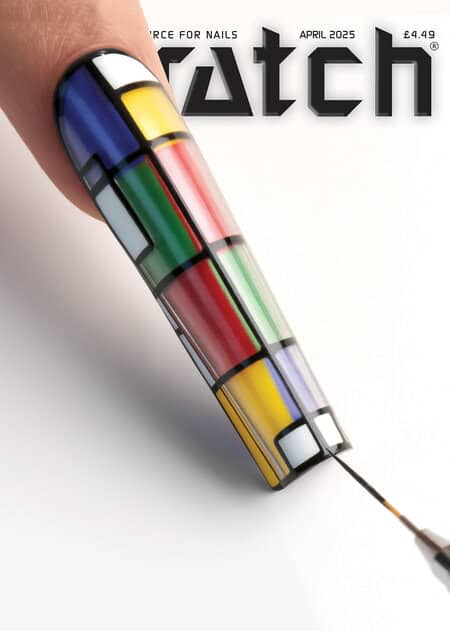Autumn Budget 2024 reactions: Here’s what beauty industry bodies have to say
By Helena Biggs | 31 October 2024 | Movers & Shakers

Chancellor of the Exchequer, Rachel Reeves, unveiled the Labour Party’s first Budget Statement in 14 years on 30 October 2024, with a focus on economic stability and development.
The Autumn Budget saw taxes rise by £40 billion, with measures announced that affect employees and self-employed workers.
The British beauty industry contributes £27.2bn to UK GDP with £28.1bn projected for 2024, according to the British Beauty Council’s (BBCo) Value of Beauty Report 2023. Here’s what representatives from the BBCo, and fellow beauty industry bodies, have to say about the changes, which will come into effect from April 2025:
British Beauty Council (BBCo)

Millie Kendall OBE, CEO – British Beauty Council
Millie Kendall OBE, CEO of the British Beauty Council, comments:
“While we welcome some elements of the Chancellor’s first Budget, there is a balancing act between securing growth and supporting businesses that are integral to achieving this aim. The doubling of the Employment Allowance is a most welcome shot in the arm to encourage recruitment and staff retention. However, when paired against increasing minimum wage and apprenticeship wage rates and employer NI contributions, reducing the per-employee threshold when employers have to pay NICs and scaling back business rate relief, any potential savings to employers soon gets swallowed up.
“We need measures that reflect the fact that the vast majority of businesses in the UK are SMEs.
“Within the beauty industry in particular, where 70% of businesses employ less than five people, placing the burden largely on UK business, and by that very fact, small businesses, to shoulder the majority of tax increases, are unlikely to reap the benefits the Treasury expects.”
“The assumption that they can simply absorb the costs is hugely misguided. We predict this will lead to a rise in self-employment, further reducing the number of apprentices we take on, which have already dropped drastically over the last decade.”
National Hair & Beauty Federation (NHBF)

Caroline Larissey, chief executive – NHBF
Caroline Larissey, chief executive of the National Hair & Beauty Federation, comments:
“We asked the government for support for employers to counteract rising wages, so we’re pleased that there is a rise in the Employment Allowance, which will benefit some sector businesses, despite the rises to employers’ National Insurance contributions. However, with 16%+ rises in the youth wage rates, there was nothing on interim support for businesses training young people.
“The only ‘youth guarantee’ for our sector will be that small and micro employers won’t be able to afford to take on apprentices. This makes it even more vital that Skills England is responsive to the needs of our sector and the Growth & Skills levy channels major support to incentivise small and micro businesses training apprentices.
“We will engage constructively with the consultation around business rates reform, and the decision to keep at least some support through a 40% retail business rates discount and the freeze of the small business multiplier is welcome and important in the interim. The government was silent on VAT but we will continue to push for reform, which is the sector’s number one issue.
“While the Employment Allowance increase offers some breathing room, the dramatic rise in apprentice wages threatens to disrupt the traditional pathway into our sector.
“Without targeted intervention, there is a risk of a skills gap that could take years to bridge. The government’s approach to retail business rates shows they’re listening, but more comprehensive support is needed to ensure the sustainability of apprenticeships in hair and beauty.”
BABTAC & CIBTAC

Lesley Blair MBE, CEO & chair of BABTAC & CIBTAC
Lesley Blair MBE, CEO & chair of BABTAC & CIBTAC, comments:
“For small businesses continuing to navigate the current financial climate, the continuation of business rates relief, which was set to end at the end of March 2025, is positive (although at 40% as opposed to the previous 75%). The increase on Employment Allowance will certainly help to temporarily lighten the load for smaller beauty businesses.
“However, the increase in National Insurance payments for employers to 15% is likely to cause a further strain for some, increasing employer costs which may have a knock-on effect for not only the employee, but customers too. As employer overheads increase, we may expect to see lower wage increases affecting day-to-day spending and disposable income, potentially resulting in more people feeling the pinch and cutting back on non-necessities.
“For some businesses, they may feel the need to increase prices for their customers in order to cover any losses.
“As one of the leading awarding bodies for education within the beauty industry (CIBTAC), we are continuously reminded of the exceptional talent within our industry and the value of investing in people. It’s positive to see that the government listened to calls for an increase in Employment Allowance, increasing from £5,000 to £10,500, allowing businesses to fund apprentices, incentivise employment and staff retention. However, with the increase of National Minimum Wage and National Insurance contribution, sadly this might not be enough to make it commercially viable for businesses to take on apprentices.”

Read the latest issue









